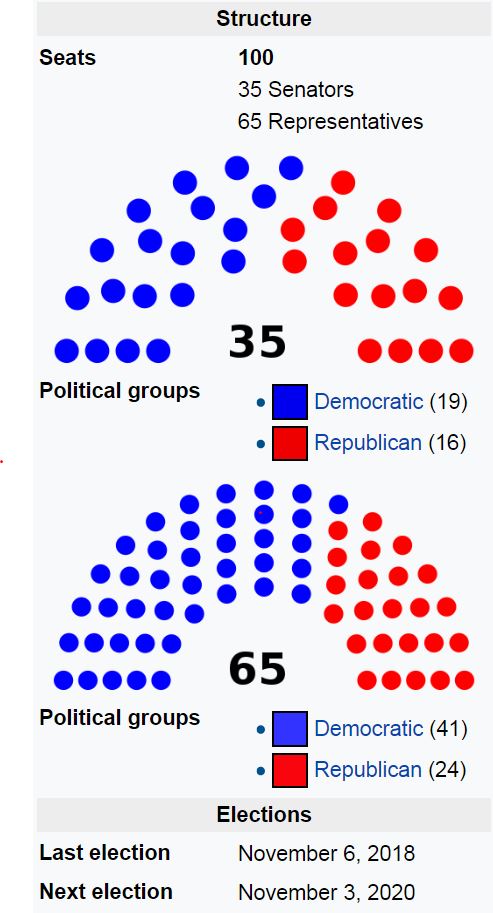When Senate Bill 19-181, Colorado’s much publicized energy overhaul bill, came up for a third reading in the Colorado Senate Tuesday morning, a movement to lay the bill over for another day was quickly carried, postponing the final discussion and senate vote until April 3. It’s the second day the bill was laid over.
This last vote is required for the Colorado Senate to either approve or disapprove the bill with the amendments that were added and approved by the Colorado House last week. The bill is largely expected to pass the Senate Third Reading along party lines, and then move to the governor’s desk for signing. Democrats hold a very small majority in the 35-seat Colorado Senate–19 Democrats, 16 Republicans.
Weld County Fire Chiefs Association Issues Letter Opposing SB-181
From the Greeley Tribune
The Weld County Fire Chiefs Association last week joined a growing list of local entities opposing a bill that could change how the oil and gas industry is regulated in Colorado.
Senate Bill 19-181, the Protect Public Welfare Oil And Gas Operations Act, aims to provide local governments with more regulatory oversight of the surface impacts of the industry.
The bill passed the Colorado House of Representatives on Friday with 14 amendments. It was sent back to the Senate on Monday for its consideration. The Senate voted to postpone action on the measure for one legislative day.
In its letter dated March 25, the Fire Chiefs Association criticized the sponsors of the bill for failing to consult with public safety providers in Weld County before drafting the legislation.
“As ‘safety’ was named as the purported cornerstone of Senate Bill 19-181, many of us here in Weld County, the primary location of the oil and gas industry in Colorado, were never contacted or queried,” the letter states. “There has been no dialogue about actual dangers or concerns by those who are responding to these risks in our communities where most of this industry is working.”
The letter notes oil and gas operators in Weld County produce 89 percent of Colorado’s crude oil and 40 percent of the state’s natural gas from more than 21,000 wells. As a result, public safety agencies have benefitted from the production with bigger budgets, which has allowed firehouses to beef up emergency operations, the letter states.
“As public safety providers (in) Colorado, we utilize our experience, technical resources and first-hand knowledge in this regard; we might be so bold as to say (we have) the most significant (oil and gas experience, technical resources and first-hand knowledge) in the state and arguably the nation,” the letter states. “Our research and experience have identified the oil and gas industry as the safest of all target hazards we currently manage today and by orders of magnitude under existing state and local regulations already in place.”
On Monday, Jeremy Young, chief of the Frederick-Firestone Fire Protection District and president of the Weld Fire Chiefs Association, touted the relationship between Colorado’s firehouses and the oil and gas industry. The two groups came together to create the Front Range Emergency Resource Co-Op, a group that coordinates site planning and emergency response training, as well as develops best safety practices and controls for production sites.
Young admitted he hadn’t done the research, but he thinks Colorado is the first state where such a partnership exists between firefighting agencies and the oil and gas industry.
Among some of the other groups opposing the bill are the Greeley Area Chamber of Commerce, the Colorado Chamber of Commerce, the Spradley Barr Ford dealership, the Weld Food Bank, and the Boys and Girls Clubs of Weld County.
A call to Sen. Stephen Fenberg, D-Boulder, Colorado Senate majority leader and a sponsor of the legislation, for a comment has not yet been returned.


